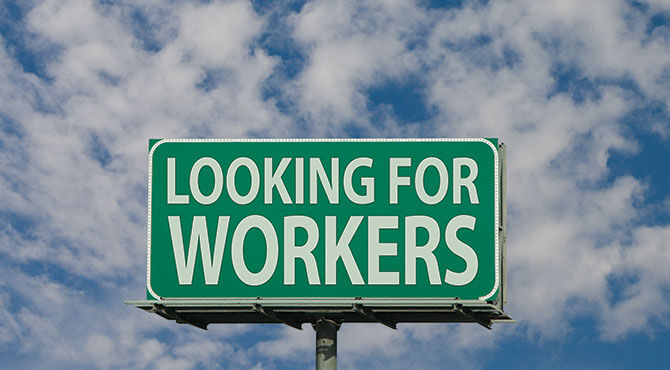Businesses Brand Visa Easing 'Inadequate'
British business leaders remain deeply unimpressed with the government's latest measures to temporarily ease visa restrictions on some foreign workers, saying a far more comprehensive overhaul of the post-Brexit immigration system is needed.

 28 September 2021
28 September 2021Baroness Ruby McGregor-Smith, president of the British Chambers of Commerce (BCC), described the plan as "the equivalent of throwing a thimble of water on a bonfire".
She said that the government should have reached a Brexit transition plan with business at the outset but, instead, the supply of EU labour had been turned off "with no clear roadmap as to how this transition would be managed without disruption to services and supply chains".
The current visa easing was insufficient, Lady McGregor-Smith added. "Even if these short-term opportunities attract the maximum amount of people allowed under the scheme, it will not be enough to address the scale of the problem that has now developed in our supply chains. This announcement is the equivalent of throwing a thimble of water on a bonfire.
“Government should be prepared to significantly expand the number of visas issued within this scheme and convene a summit that brings business and government together to find both immediate and longer-term solutions to the many challenges facing firms throughout the UK.
"Without further action, we now face the very real prospect of serious damage to our economic recovery, stifled growth as well as another less than happy Christmas for many businesses and their customers across the country.”
Matthew Fell, chief policy director at the Confederation of British Industry (CBI), agreed that tackling labour shortages required a concerted effort from both business and government.
“While the government has finally used levers at its disposal, the limited scope of this announcement has surprised many," he added.
“Businesses are playing their part. Latest CBI data shows almost seven in ten firms are planning pay rises. Many are stepping up investment in training, widening talent pools and doubling down on investment in digital and automation.
“Yet the scale of the challenges facing businesses on multiple fronts underlines the need for a COBR-like (emergency) Cabinet Committee for recovery, enabling much faster action to alleviate short-term pressures.”
Rod McKenzie, director of policy at the Road Haulage Association (RHA), which estimates the UK is short of 90,000 heavy goods vehicle drivers, said the offer of 5,000 visas valid for only 12 weeks would “barely scratch the surface” of the problems facing the logistics industry.
“So although it is good that the government has listened to RHA about the need for short-term visas, we are still very worried about the details and the short duration of them,” he said.
Hannah Essex, co-executive director of the BCC, said that chambers of commerce had been warning the government for months about the critical labour shortages that so many sectors of the economy – not just in the food and haulage industries - were facing.
“Businesses are facing the most difficult environment for a generation," she said. "On top of labour shortages, border delays, increased debt and the rising cost of materials, shipping and energy are all putting huge pressure on firms struggling to recover from the pandemic. All of these issues are hitting smaller firms the hardest.
“Attempts to address the deficit of HGV drivers and poultry workers is a step forward, but these industries are only the tip of the iceberg when it comes to the huge impact of the current labour shortages."
©2024 Re:locate magazine, published by Profile Locations, Spray Hill, Hastings Road, Lamberhurst, Kent TN3 8JB. All rights reserved. This publication (or any part thereof) may not be reproduced in any form without the prior written permission of Profile Locations. Profile Locations accepts no liability for the accuracy of the contents or any opinions expressed herein.
































